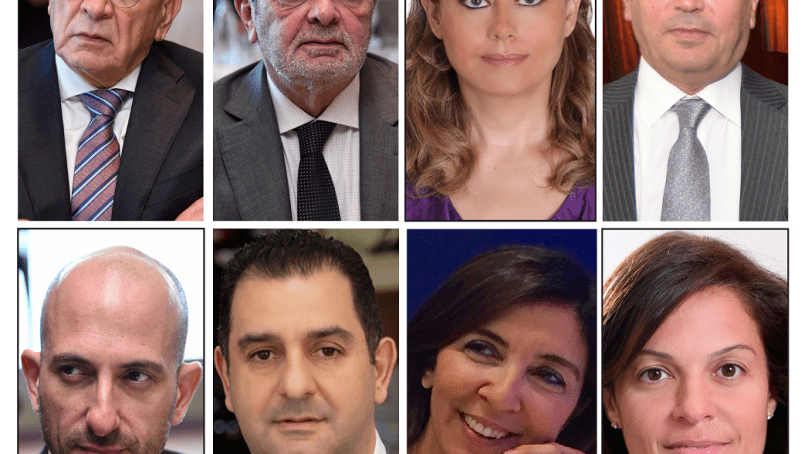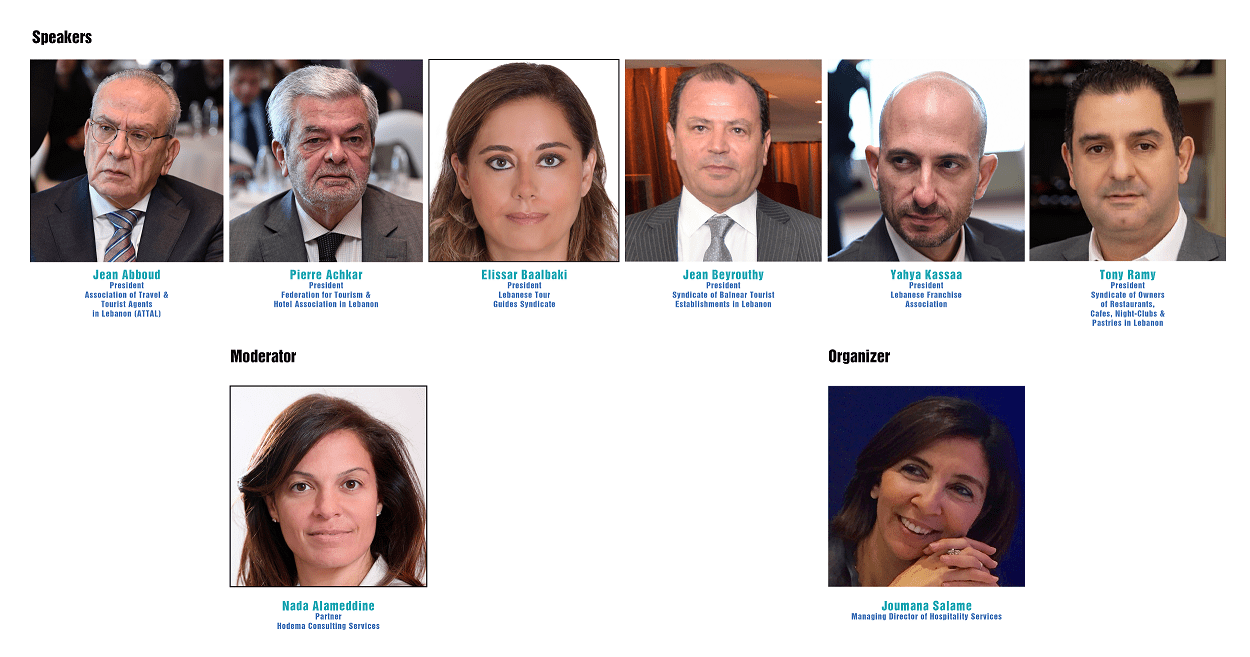Powered by Hospitality News Middle East and funded by the USAID Lebanon Enterprise development (LED) project, Hospitality News Talks held its second virtual roundtable on February 18 — “What 2021 holds for Lebanon’s hospitality industry.” During the online session, one of 12 such talks moderated by Hodema Consulting Services, a panel of experts discussed the state of the industry, the latest developments and how to ameliorate the impact of COVID-19 and other challenges the sector has recently come up against. The speakers also proposed ways to boost recovery in 2021 and attract foreign tourists.
The panel included: Jean Abboud, president of the Association of Travel and Tourist Agents in Lebanon; Pierre Achkar, president of the Federation for Tourism and the Hotel Association in Lebanon; Elissar Baalbaki, president of the Lebanese Tour Guides Syndicate; Jean Beyrouthy, president of the Syndicate of Balnear Tourist Establishments in Lebanon; Yahya Kassaa, president of the Lebanese Franchise Association; and Tony Ramy, president of the Syndicate of Owners of Restaurants, Cafes, Night-Clubs & Pastries in Lebanon. Nada Alameddine, partner of Hodema Consulting Services, moderated the session.
During the debate, Achkar spoke about the geopolitical issues that have contributed to Lebanon’s struggles. “We have several problems, which started with the Syrian war in 2011. We have witnessed division within the country; some were pro-Gulf, while others were against the region, and this resulted in the Gulf states issuing a travel ban against Lebanon.” He went on to add: “The formation of a government in Lebanon is paramount. We must work on a promotional campaign aimed at the Gulf and at Europe countries to improve Lebanon’s tainted image.”
Ramy also highlighted how destabilizing the environment has been for those working in the hospitality sector. “It all went downhill once the revolution began and the country’s bankruptcy came to light. Covid-19 took a massive toll on the industry, and we were left without financial aid from the government to survive its repercussions.”
Beyrouthy blamed bad governance for Lebanon’s woes. “Lebanon suffers from an economic crisis, instability, the loss of Gulf tourists and political turmoil. We are paying the price of the ongoing political turmoil, and we cannot continue on this path.”
In terms of travel in and out of Lebanon, Abboud said: “The tourism sector regressed by 90 percent compared to the figure in 2017 and 2018. Airlines that used to fly seven times a day to Lebanon are now flying only once, and some airlines, like Alitalia, are no longer operating flights to Lebanon.”
Representing Lebanon’s tour guides, Baalbaki spoke about the dire consequences of the economic situation and the coronavirus pandemic on the livelihood of guides, who get paid a daily rate and rely on foreign tourists for work. She added: “We need to work on the main tourism axes in Lebanon: religious, nature and culture. Since 2019, we have been focusing our PR abroad to brand and market Lebanon, and we became part of the Phoenician Route.”
Kassaa spoke about the importance of flexibility. “In order to survive, companies need to be innovative and creative, which is challenging when the finances are not available.” He went on to say: “The World Franchise Council meeting was set to take place in Lebanon. The fact that Lebanon was chosen to host this prestigious event proves how much trust there is in this country and the extent to which people want to do business here. There is so much interest and potential, but the challenge is to create the right conditions and guarantee stability.”
The main outcome of the discussion was the fundamentality of uniting to face the unprecedented challenges in Lebanon, namely the economic crisis, political upheaval and the coronavirus pandemic. The panel spoke about the importance of forming linkages with local and international bodies to help promote Lebanon. They agreed that the Gulf has always been a key market for tourism but that the number of tourists from the region has declined due to travel bans, protests in Lebanon, the Beirut Port explosion and Covid-19-related restrictions.
With Lebanon now becoming one of the cheapest holiday destinations in the world, due to the large devaluation of the Lebanese pound, and long-haul travel likely to suffer for some time to come, it is reasonable to assume that tourists from the Gulf, the Mediterranean and Europe would be tempted to travel to a place that is geographically close and offers excellent value for money, beaches, mountains, history, culture and so much more; but this all hinges upon political stability.
The question remains how tourism can be promoted. One of the biggest hurdles is the lack of digitization. A large portion of Lebanese companies are not cyber savvy. Indeed, figures show that 85 percent of businesses in Lebanon are not online, which must change. All businesses, especially those that are trying to entice foreigners, need to be active online. There is no escaping the fact that entering the digital world is the only way forward, and firms need to embrace technology wholeheartedly. Social media is one of the most powerful tools in marketing, even more so in an age of Covid-19. Online advertising campaigns promoting Lebanon to the Arab world, Europe and the Lebanese diaspora should be considered on platforms such as Booking.com, Expedia and YouTube.
Growth opportunities exist for guesthouses and domestic operators. The devaluation of the local currency and the complexities of traveling abroad during a global pandemic have forced the majority of Lebanese to rethink their travel plans. Many have opted for lockdown staycations at guesthouses, boutique hotels and campsites across Lebanon. It is likely that this trend will continue, particularly given the fact that strict Covid-19 restrictions remain in place in many countries around the world and the purchasing power of the majority of the population in Lebanon continues to dwindle. Activities centered on ecotourism and rural tourism are increasingly in demand, providing opportunities for those working in the field: guides, tour operators, etc.
It is believed that IATA’s Digital Travel Pass, to be launched in March 2021, will positively impact the travel industry as a whole. The pass will provide accurate information on the health status of passengers and will inform them of the tests, vaccines and other measures they require prior to travel.
Bureau Veritas’ SafeGuardTM label is also likely to positively affect the hotel industry. The SafeGuardTM Hygiene Excellence and the Safety Label certify that establishments have met hygiene standards. This will undoubtedly provide guests with a degree of reassurance.


















